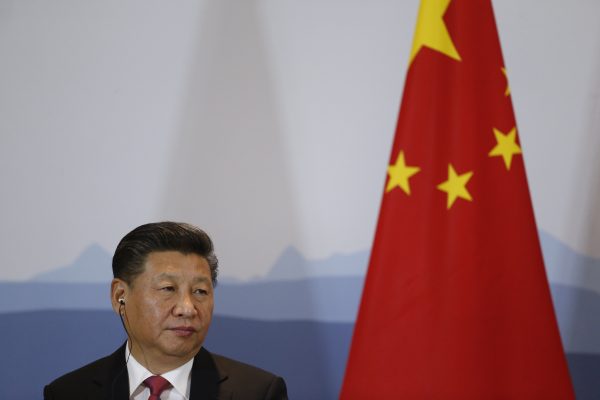Delegates will assemble in Beijing on dates yet to be announced to endorse the new central leadership of the 19th Central Committee, the Politburo and the Politburo Standing Committee (PSC). New CCP leaders will be assigned key positions in major state and military organisations.
The 19th Congress is China’s most important political event since 2012, marking the beginning of President Xi’s second term. The new central party leadership will rule China over the next five years, a critical time for realising the vision of China’s development that Xi set out to achieve.
The Chinese Dream has set two centenary goals. The first is to double China’s 2010 per capita income, making China a ‘moderately well off’ society by 2021, the centenary of the founding of the CCP. The second aims to make China a ‘strong, democratic, civilised, harmonious and modern socialist country by 2049’, the centenary of the founding of the People’s Republic.
During most of Xi’s first term, the focus internally has been on overhauling the party-state: riding off corruption, centralising political power, imposing party self-discipline and applying strict codes of conduct for party leaders at all levels. Xi’s anti-corruption campaign has been central to achieving these objectives. When Xi said that ‘you need a strong body to be a good blacksmith’ he meant that the party-state was weak, corruption was rife, the bureaucracy incompetent and the leadership fragmented. The party-state needed a thorough clean-up to avoid implosion like that which occurred in the former Soviet Union.
Xi’s drive to centralise power sought to overcome fragmentation at the top and improve policy implementation below. By late 2016 Xi was endorsed as the core of the party’s leadership, giving him the final say on important party and state affairs. Heading up top decision-making by leading small groups cemented his role.
In the end, Xi’s leadership aims to place power into an institutional cage so that officials lead under the rules and laws of the party state and the use of power is under close institutional supervision. At least that’s the aim.
The 19th Congress will unquestionably uphold Xi’s ‘political line’, already firmly endorsed by the party. It is a comprehensive four-pronged strategy directed at accomplishing a ‘moderately well off’ society, deepening reform, advancing law-based governance in China and strengthening party self-discipline.
All party members are supposed to align their thinking with this plan. There have been efforts to embed it in mainstream public thinking through tightening media control and shutting down opposing views.
The CCP has rules and procedures developed over recent decades around leaders’ selection, appointment, retirement and replacement. They are often informal, evolving and not always strictly followed, yet they are what drive the high turnover during leadership transition. The 19th Congress is expected to see the replacement of up to five of the seven PSC members, half of the Politburo and a large number of central committee members.
The scale of change in the CCP leadership and its importance can’t be overstated. It’s a chance both to inject new blood as well as to promote leadership loyalists in China’s political class. China’s political insiders sometimes whisper that Xi is playing a big game, with a grand plan that aims high. Does that mean anything for political reform?
Xi has rejected changes that would involve a separation of powers weakening CCP leadership but is committed to limiting power institutionally. There’s no contemplation of an independent judiciary but the party leadership and party officials, no matter how high their position, will be subject to the law that is made by the Party. Xi’s establishment of the State Supervision Commission that places the use of power in the party-state under close institutional watch exemplifies this model. This distinguishes the Chinese political path from those that have been followed in the West or in the Soviet Union.
Will Xi move to fundamentally restructure power in the upper echelons of the CCP, by abolishing the PSC and making himself the chairman? Only time can tell. But what is sure is that his overriding aim is to strengthen the party and make its leadership more effective.
Will the 19th congress be a turning point from which market-based economic reform, widely perceived to have stalled in recent years, makes a comeback?
That depends on what the problem’s been. State-owned enterprise (SOE) reform has gone virtually nowhere, but why? Maybe the design of the Third Plenum package contained too many contradictory elements. Maybe SOE reform was never meant to go beyond certain limits. Or perhaps the vested interests against it were successful.
Xi’s consolidation of decision-making power is aimed at easing the resistance of vested interests and improving policy implementation. The first centenary end goal is fast approaching, driving the need to reform and perform.
Dong Dong Zhang is a National Government Fellow at the Crawford School of Public Policy, The Australian National University.

